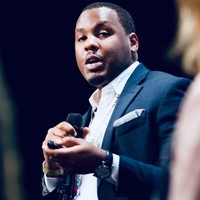Women Deliver 2023: Igniting hope, propelling progress – empowering global gender equality
Highlights include a new funding facility with Open Society Foundations, a new approach to youth engagement and multiple commitments made by WHO, UNFPA, UN Women and others
Kigali, Rwanda, July 20th 2023: Today marks the end of the Women Deliver 2023 Conference (WD2023). The week saw 6300+feminists, 100+ journalists and content creators,600 scholar recipients,and 87 sponsors representing 170 countriesconvene in Kigali to advance gender equality and protect sexual and reproductive health and rights for girls and women, in all their diversity.
“When women and girls are supported with funding and the right resources, they have the potential to challenge harmful norms, push for institutional and legislative reforms, and transform their communities,” explained Dr. Maliha Khan, President and CEO of Women Deliver.

Dr. Maliha Khan, President and CEO of Women Deliver.
“Over the last five days, we have had meaningful discourse on what we needto do for women and girls globally.We must now act to secure their bodily autonomy and sexual and reproductive health and rights.”
“WD2023 has reminded us not only of the barriers, but also the achievements that have been made. I hope everyone walks away from the conference carrying this sense of achievement and hope based on the commitments that have been made.”
Key outcomes and commitments made at WD2023 include:
- A newfunding facility with Open Society Foundationsto counter the anti-rights movement and provide financial investmentinto the most neglected sexual health and reproductive areas.
“There’s no denying it: The fundamental freedoms of women in all their diversity and the LGBTQIA+ communities are under assault. The anti-rights movement is deliberately strategizing to build public support and win elections by promoting vitriolic narratives and diverting public attention away from pressing issues such as climate change, the cost-of-living crisis, and growing inequality. Our best chance to fight back is to resource our feminist movements and grow our collective political influence all the way from the local level to multilateral spaces to ensure all voices are heard and fundamental rights are respected.” –Sumaiya Islam, Action Division Director of Intersectional Justice at Open Society Foundations.

Sumaiya Islam, Action Division Director of Intersectional Justice at Open Society Foundations
- A campaign launched by over 40 organizations toclose the gender nutrition gap, alongside a co-created Action Agenda that calls for transformative actions from governments to improve women’s and girls’ nutrition.
“This campaign will highlight the stark – and growing – inequalitiesin nutrition for women and girls worldwide who are twice as likely to suffer from malnutrition as men and boys.The Closing the Gender Nutrition Gap: an Action Agenda for Women and Girlshas a clear call to action for actors, including what governmentsmust do to close the gap, both in terms of quick wins and the systemic gender transformative actions needed to improve women and girls’ nutrition.”–Deborah Ash, Director Women’s Nutrition, FHI 360
- TheRESPECT Women website, anonline platform that aims to drive concrete actions to prevent and respond to violence against women and girls, launched byThe World Health Organization (WHO), together with UN Women, the United Nations Population Fund (UNFPA), and the United Nations Development Programme.
“Violence against women and girls remains a crisis for rights and health for millions of women and girls around the world, governments need to ‘walk the talk’ in investing in evidence-based resources for violence prevention and response, while advancing gender equality. This new platform aims to support this process.”– Dr. Pascale Allotey, Director of Sexual and Reproductive Health and Research at WHO, and head of the UN Special Programme on Human Reproduction (HRP).
- The Kigali Call to Action: United for Women and Girls’ Bodily Autonomy announced by the UNFPA to accelerate investments and actions, with women-led organizations and the feminist movement at the center.
“Bodily autonomy is non-negotiable. It is about choices, rights and the power of women and girls to decide over their own body. UNFPA is calling for coordinated and collective action to achieve bodily autonomy, reproductive rights and gender equality well in time for 2030.”– NataliaKanem, UNFPA Executive Director
- A new Women Deliver Emerging Leaders Program that will put more trust-based funding into the hands of young people and ensure that they have the knowledge, resources, supportive ecosystem and leadership opportunities to achieve their gender equality and sexual health and reproductive advocacy goals.
“We believe in the power of bringing people together, to work in partnership, to bring the voices of the youth together. To do that, this program will be taking a thematic and a geographic focus to be determined through consultations in the next few months. We are most excited about increasing trust-based funding for youth. Through our engagements with the youth during the conference, we heard that young people cannot do their work without funding. Funding remains important for their gender equality advocacies.” – Julia Fan, Senior Manager for Youth Engagement atWomen Deliver

Julia Fan, Senior Manager for Youth Engagement atWomen Deliver
The conference was organized to inspireand mobilize collective action to achieve true equality and rights for girls and women globally.
In closing, Dr. Khan emphasized: “There is still so much work to do, there are so many issues to address, there are so many barriers still in the way of women and girls achieving their full potential. The only way to achieve our objectivesis through collective efforts. We hope that Women Deliver has planted the seed to strengthen our solidarity and unity now, and long into the future.”
About Women Deliver Women Deliver is a leading global advocate that champions gender equality and the health and rights of girls and women, in all their intersecting identities. Our advocacy drives investment – political and financial – in the lives of girls and women worldwide. We harness evidence and unite diverse voices to spark commitment to gender equality.









